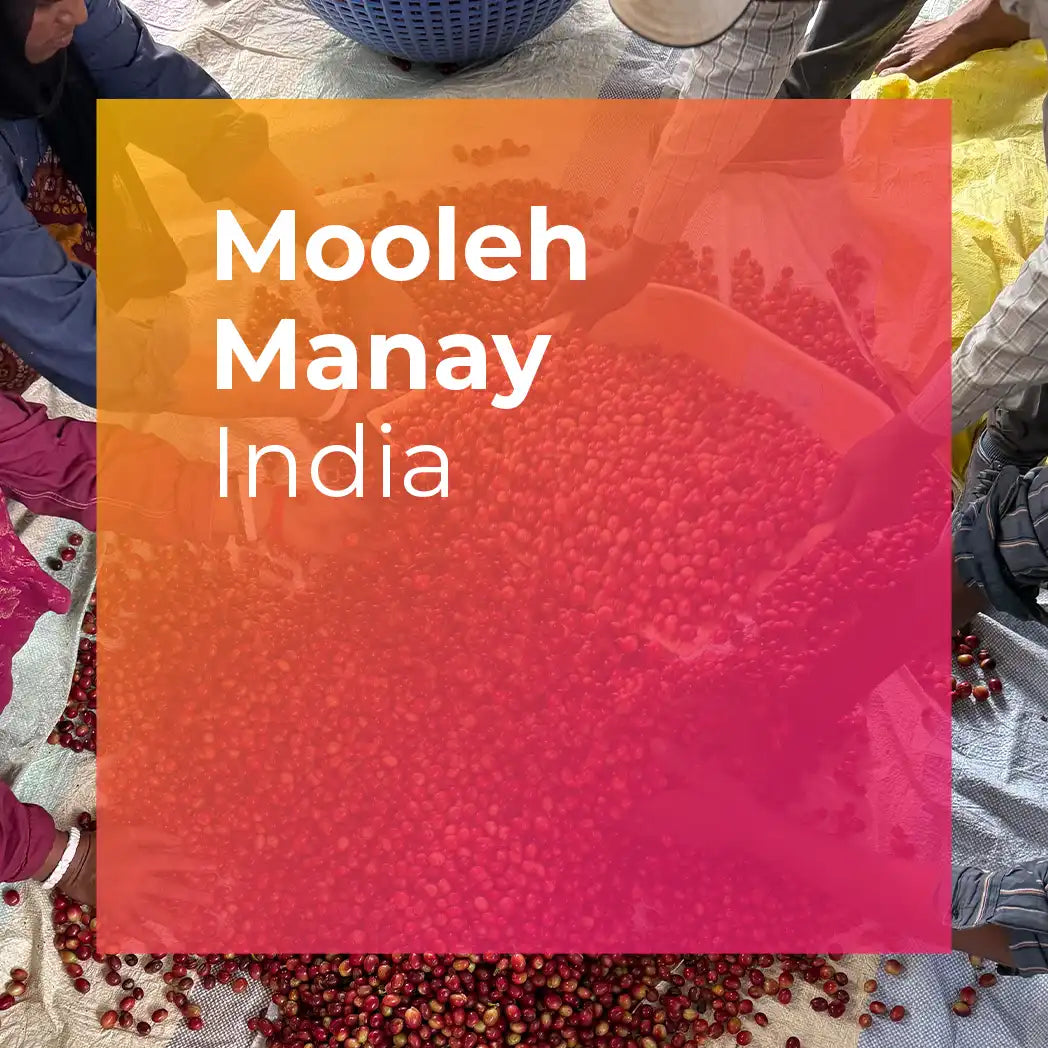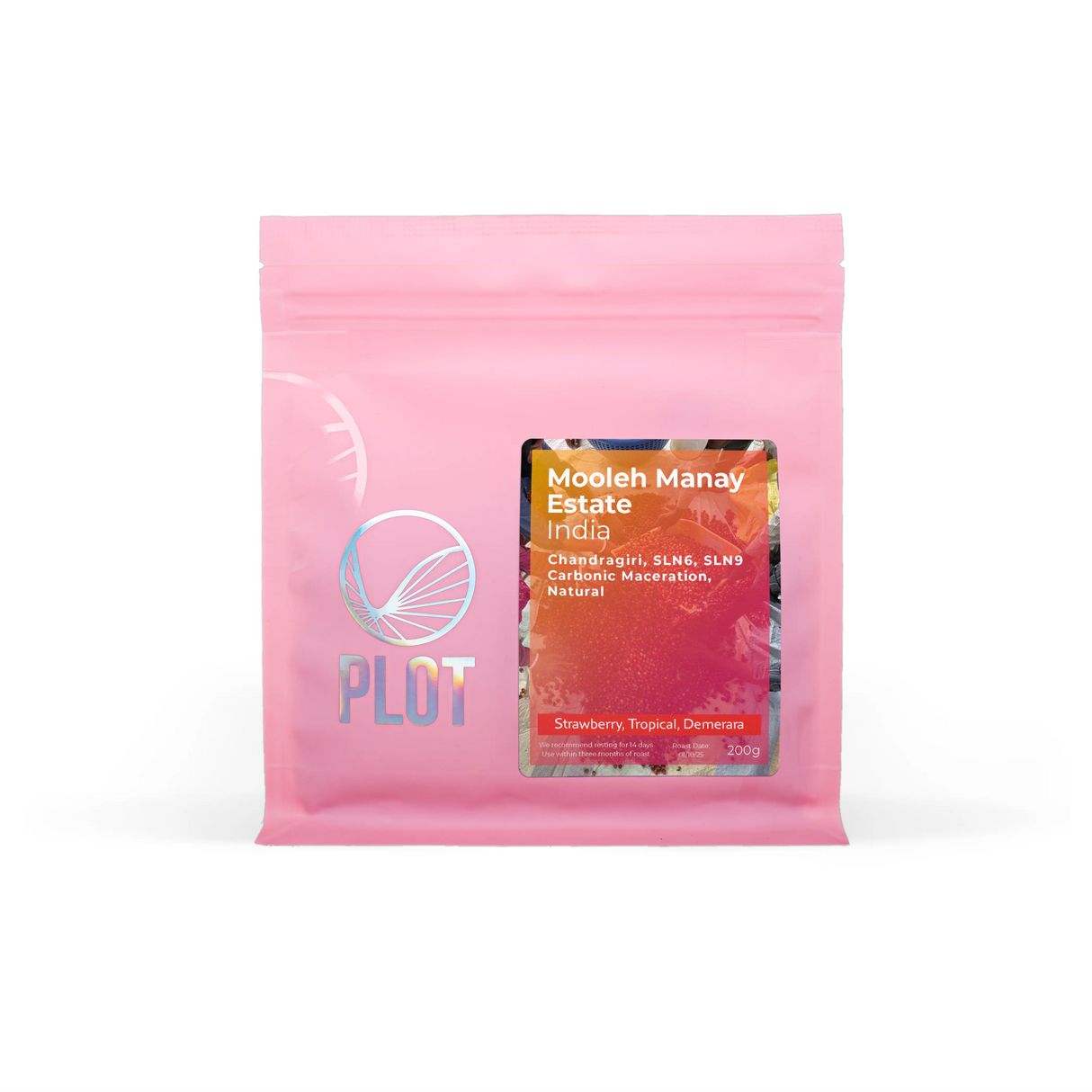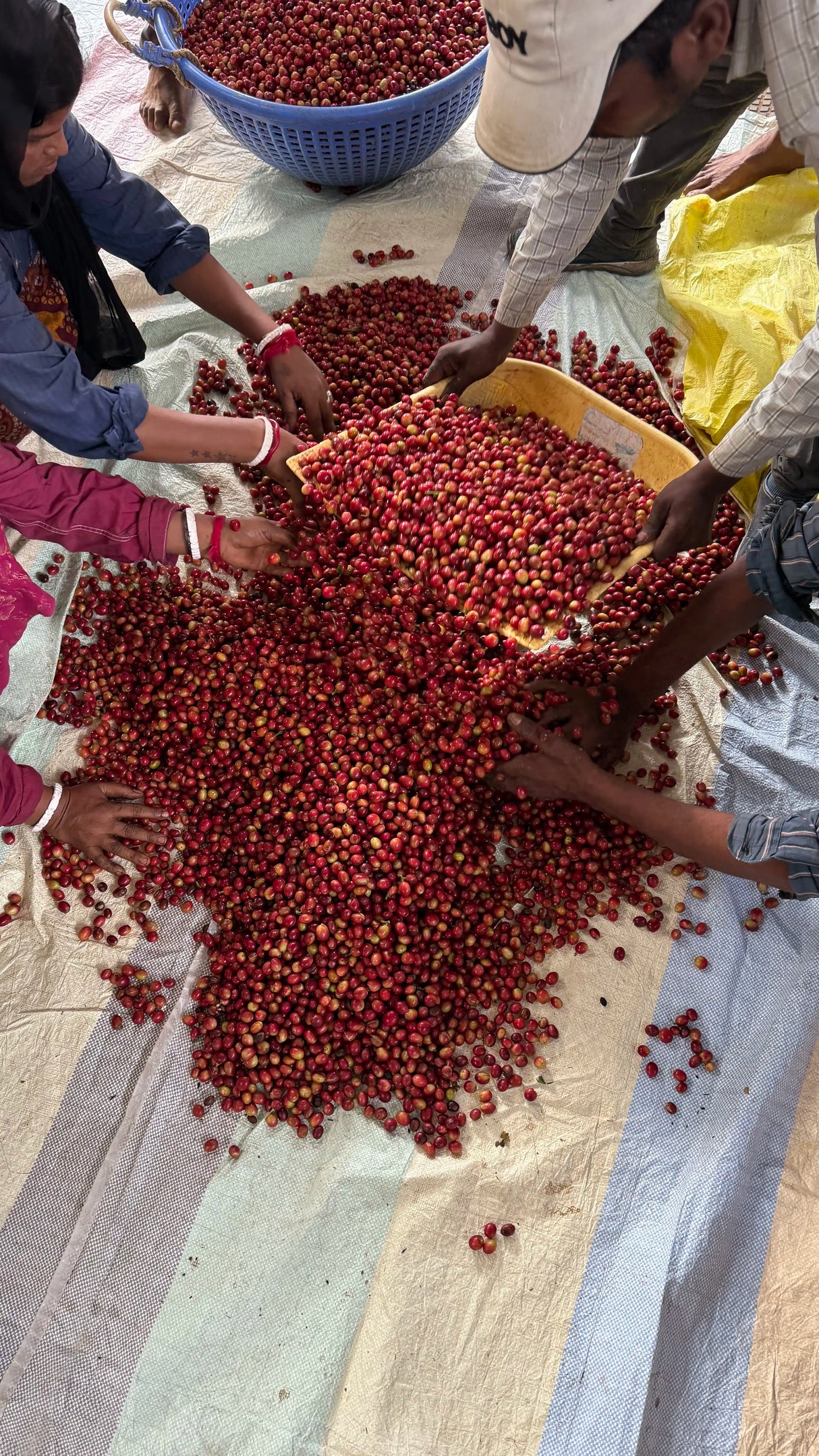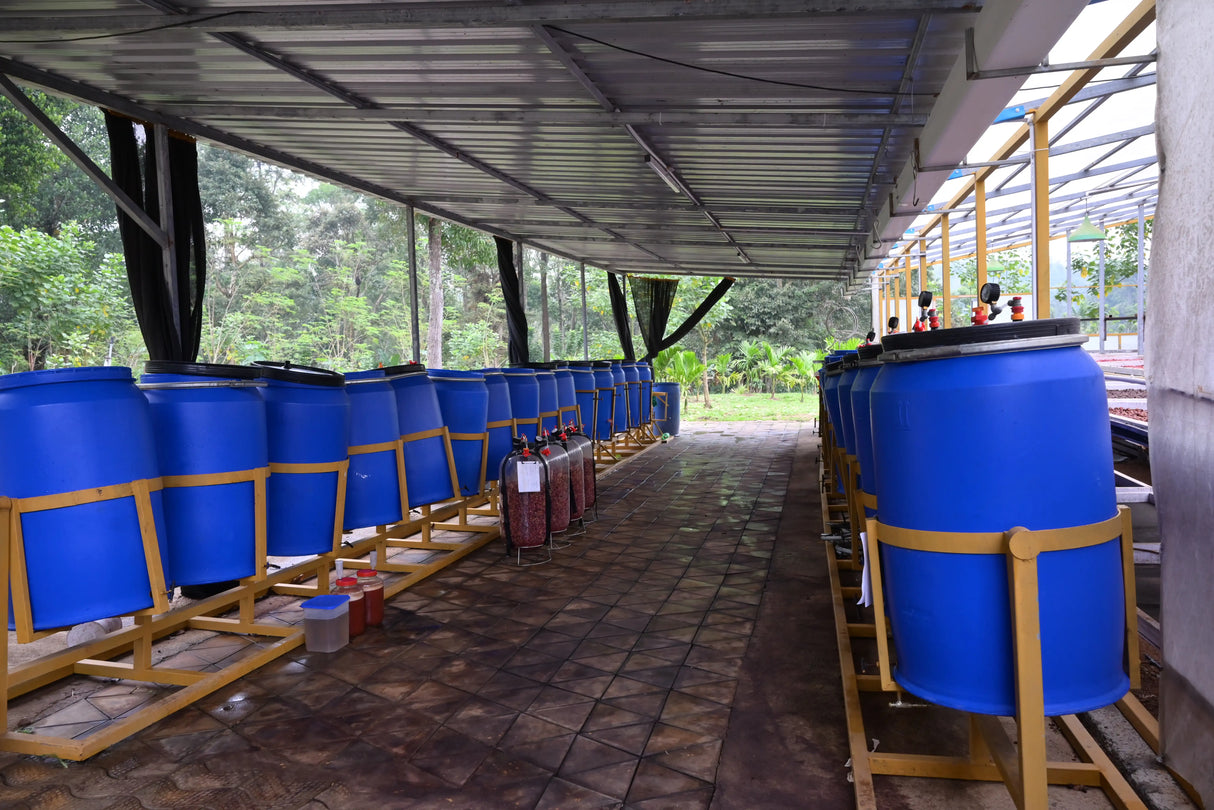MOOLEH MANAY, Natural Carbonic Maceration
£12.00
Unit price
Unavailable
MOOLEH MANAY, Natural Carbonic Maceration - 200g is backordered and will ship as soon as it is back in stock.
Lot Info
Lot Info
Producer
Producer
Cultivar
Cultivar
Process
Process
Traceability
Traceability
| Producer | Komal and Akshay Dashrath |
| Location | Mooleh Manay, Nakoor Village , Coorg, Karnataka, India |
| Elevation | 1,000 masl |
| Cultivar | SLN6, SLN9, Chandragiri |
| Preparation | Natural, Carbonic Maceration |
| Harvest | October - December 2024 |
| Arrival | June 2025 |
| Exporter | South India Coffee Company |
| Importer | South India Coffee Company |












